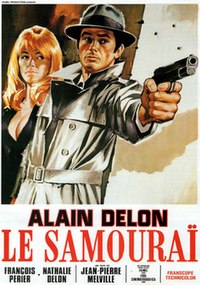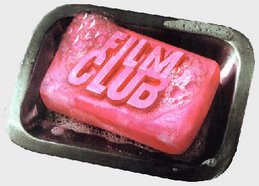Steve's hosting another movie night! He's screening Color of Paradise (as promised, it's shorter than An Angel at My Table). The show starts at 7pm this Saturday (March 3rd). I hope you can make it.
Steve's house:
2407 Chilcombe Ave, St. Paul
(near hwy 280 and Como Ave.)
Call 612 508-8174 [Steve] or 612-414-7661 [Bjorn] if you need directions.
*Hey, anyone see any of the 2007 movies yet? What did you guys and gals think about the Oscar results?
**The much over-looked Children of Men is playing at Riverview. In my opinion this was one of the best films of 2006. Let me know if you want to go see it.
Tuesday, February 27, 2007
Tuesday, February 13, 2007
Oscar Party!
Where: Änna and Bjorn's. 581 Pelham Blvd., St. Paul, MN 55001
When: Oscar night. Sunday, February 25th. The show starts at 7pm, but come at 6 if you're interested in the Red Carpet festivities.
What else? Last year I had a prize for the person(s) who picked the most award winners on the ballot, and I think I'll try to do that again. (You can get a printable ballot here.) Ballots have to be in by 7pm to count. Good luck!
We'll probably have light snacks and drinks, so just bring yourselves!
When: Oscar night. Sunday, February 25th. The show starts at 7pm, but come at 6 if you're interested in the Red Carpet festivities.
What else? Last year I had a prize for the person(s) who picked the most award winners on the ballot, and I think I'll try to do that again. (You can get a printable ballot here.) Ballots have to be in by 7pm to count. Good luck!
We'll probably have light snacks and drinks, so just bring yourselves!
Monday, February 5, 2007
Favorite Films of 2006.
As a warm up to The Oscars, I wanted to hear what all of your favorite films from last year were.
Click "_ comments" to share your thoughts.
Thanks.
Click "_ comments" to share your thoughts.
Thanks.
Silent Service - Le Samourai
There is no solitude greater than the samurai's, unless perhaps it be that of a tiger in the jungle.
-Book of Bushido

Honor, Pride, Service and death. Words for a warrior. Whether a soldier in an army or a lone assassin, these words are the code that has bound warriors for thousands of mankind's years. In film, as well as history, the Samurai have served as the archetypes for warriors that follow a strict code. There is a special fascination that film audiences hold for the Samurai. They are embraced for their supernatural combat skills and unbreakable Zen, yet it is these mechanical qualities that serve to distance them from the audience as well as the other characters. Characterized by solitude and inevitable death, Samurai have become some of film's great tragic characters and no film emphasizes their tragedy better than Le Samourai.
Jef Costello (played by Alain Delon ), is not the typical Samurai. For one, this is set in 1967 Paris and Costello is not a robe-clad martial artist. The title of the film as well as the opening passage from the Book of Boshido serve to create a metaphor for the audience that will connect Costello to the notions of a Samurai outside the usual combat and culture. Costello is a hitman. A killer that is so methodical and focused that he does not even have a criminal record (since he is never caught.) His drab, sparse apartment and cold, deliberate interactions with other characters reflect his complete dedication to his work. There is no sense of happiness in this character, giving the impression that his solitude is a necessary aspect of his duty.
The director, Jean-Pierre Melville, distinctly styles this movie to speak of the character. Drab color and ugly mornings reflect an overall mood of melancholy. The film is nearly silent, which caused me to listen to the thoughts in my head (or passing through the character's?) and methodically be weighted down by his troubles. Perhaps most importantly, Melville leaves out intense action scenes. Roger Ebert states the reasoning better than I can.
Action is the enemy of suspense. Action releases tension, instead of building it. Better to wait for a whole movie for something to happen (assuming we really care whether it happens) than to sit through a film where things we don't care about are happening constantly.
The calm Costello, after being betrayed by his employer and chased by the police, is wearing down. We can see the exhaustion in his eyes. An exhaustion not a result of 15 straight fights (like in a typical film), but because honor and pride are battling inside his head and he is desperately (yet deftly) planning his own salvation.
Subscribe to:
Posts (Atom)
